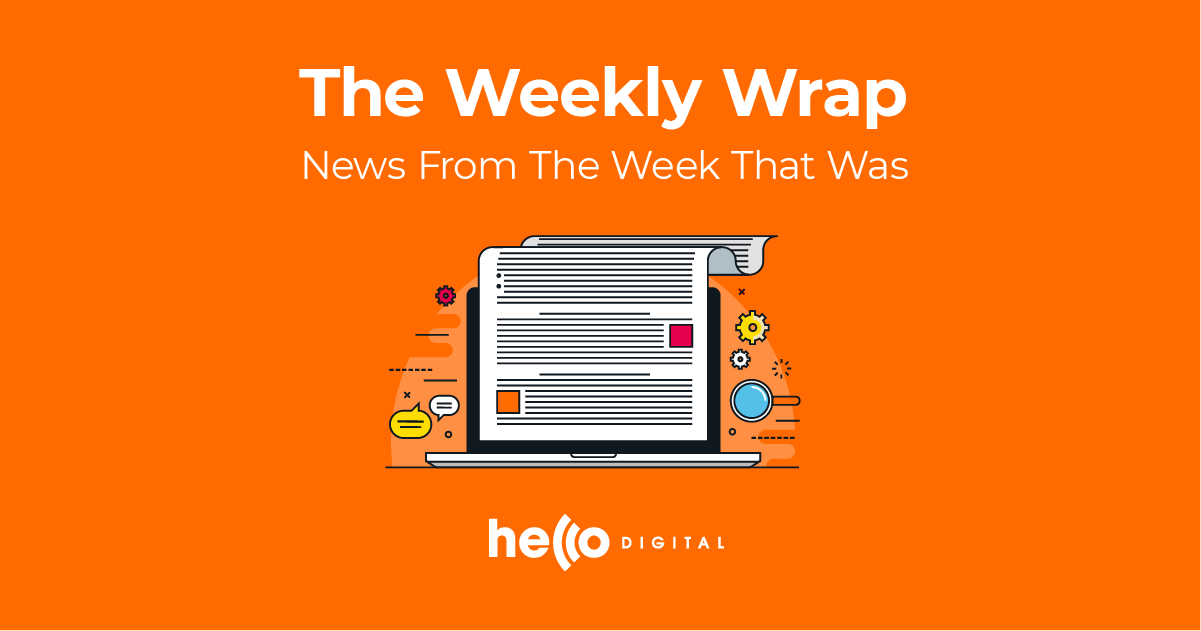Hello Digital looks at the highlights from the week that was.
From internet outages to France starting to tax big tech companies, it’s been a big week in digital news. On Wednesday this week, Amazon reported a huge outage on AWS, its internet infrastructure service, YouTube has made changes to their terms that means they will start making money on creators content without having to give them a share of revenue, and SEOs are preparing for the next big update to Google’s Page Experience ranking algorithm, launching in May 2021.
Take a look at some of the highlights from this past week.
YouTube will start earning revenue from content before the creators are eligible for a share
YouTube creators will now have their content monetised with ads, or by charging users to access it, but they won’t necessarily be entitled to any revenue sharing.
In YouTube’s latest terms of service update, creators will have to agree to these terms. It essentially means that YouTube will start inserting ads into content that isn’t part of their Partner Program (YPP) and will start earning revenue from it, even though creators might not be eligible for revenue sharing.
The Partner Program shares revenue with popular creators on the platform, but to be eligible you need to have more than 4,000 watch hours across the past 12 months and more than 1,000 subscribers, among a bunch of other requirements.
In other YouTube news, the platform is testing video chapters, which will let creators define specific segments of their video with time stamps. This will make it easier for viewers to skip to specific sections of videos and also enables YouTube (and Google) to identify specific video elements for user queries. At the moment, it’s up to creators to manually add video chapters, but it could eventually lead to chapters being added to all clips by YouTube.
France will start taxing tech giants and pushes other European countries to do the same
France is leading the charge on taxing big tech companies that they believe have avoided being taxed properly up until now. The government has sent out notices to tech giants like Facebook and Amazon, which they argue have taken advantage of countries with low corporate tax to optimise their bottom line.
They are pushing the tax reform to be picked up by other European countries, but will start working on their own local tax in the meantime. They have set two requirements for the reforms:
- If the company generates more than €750 million in revenue globally and €25 million in France.
- And if they’re operating either a marketplace (such as Amazon’s marketplace, Uber, Airbnb) or an advertising business (Facebook, Google, Criteo).
Once the company meets those requirements, they will have to pay 3% of their French revenue in taxes.
Google’s next Page Experience update is coming next year
Google’s next big page experience update is set to go live in May 2021. The new ranking algorithm is designed to judge web pages by how users perceive the experience when interacting with a web page. Although the update is not set to be a major one, SEOs shouldn’t ignore it either.
Page experience plays a big part in ranking factors, as well as being incredibly important to visitors to your website. As part of the upcoming update, if Google thinks your site visitors will have a bad experience on your pages — which is measured by a new set of metrics called Core Web Vitals — they may not rank those pages as highly as they currently are.
Search Engine Land are recommending that SEOs start planning for the changes now and are predicting that it is part of a evolution of the nature of SEO as a profession, with Matt Dorville, SEO manager at BuzzFeed, stating that:
“It does continue the trend that SEOs are going to have to get more technical (if they aren’t already) to be able to talk to engineers as they troubleshoot solutions relating to speed, JavaScript rendering and ways to prioritize what Google is asking for in relation to other priorities that the business has,”
You can read more about the update and how to prepare for it in Search Engine Land’s article.
A big chunk of the internet in the U.S went down on Wednesday
On Wednesday this week, Amazon Web Services (AWS), which is Amazon’s internet infrastructure service and the backbone of many websites and apps, experienced a multi-hour outage that affected a big portion of the internet.
The prolonged outage caused issues for only one of their 23 geographic AWS regions, according to Amazon. But it was significant enough to take out a large number of internet services. Many apps, services and websites in the U.S reported issues, like Flickr, iRobot, The Philadelphia Inquirer, RadioLab, Vonage, and The Washington Post.
If you’re unfamiliar with AWS, it is now one of the most widely-used cloud computing services in the world, which means that any issues could have big ripple effects across other web services and apps. As of Thursday morning, Amazon stated that the service had “nearly” been fully restored.
